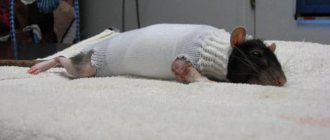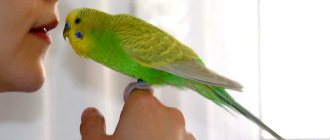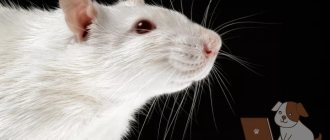Mice live next to the man of the millennium. Many ingenious and dangerous methods have been invented in the fight against “uninvited guests.” But as soon as autumn approaches, you hear the patter of little paws, squeaking, and rustling. They not only create an unpleasant smell in the house, but also chewed things and spoiled food.
Mice live next to the man of the millennium. Many ingenious and dangerous methods have been invented in the fight against “uninvited guests.” But as soon as autumn approaches, you hear the patter of little paws, squeaking, and rustling. They not only create an unpleasant smell in the house, but also chewed things and spoiled food. Of course, you can use poisons and mousetraps, or you should try more humane means, for example, repelling with odors. These are proven, folk methods, thanks to which rodents leave a person’s home and rarely return to it.
Signs of mice in the house
The main ways from which uninvited guests can enter your home are the basement, sewers, ventilation pipes, and garbage chutes. There are direct signs that mice have entered your home:
- Holes in walls and floors are passages that rodents need to move freely around the apartment;
- Mouse droppings are small black oblong feces;
- The smell is sour and musty, easily recognizable;
- Sounds – if during the day mice can make a slight rustling noise when moving, then at night, especially if there are large concentrations of them, quite loud sounds can occur under the floor and behind the walls, accompanied by a characteristic mouse high-pitched squeak;
- Wary behavior of a cat - if the pet constantly sniffs and looks for something, freezes in one place for a long time - perhaps he is hunting for mice, the presence of which you do not even suspect.
Squeak of decorative mice
Usually, animals express their dissatisfaction with the conditions of detention or report a painful condition with loud exclamations. The mouse can squeak:
- under stress;
- lack of water or food;
- during illness;
- due to itchy skin as a result of infection with ectoparasites;
- with allergic dermatitis, when the skin is flaky, painful and inflamed.
It is believed that a small rodent can squeak for about a week after changing its place of residence - and this is the norm, since it takes some time to adapt to a new home.
It is important to never add new residents to an already established team, otherwise you will end up with a real mouse booth, which will ultimately end not just with indignant exclamations, but also with the murder of the uninvited guest. In the latter case, a desperate whistle will be heard guaranteed.
Illness is another reason for squeaking. At the same time, it will be more like crying - loud, pitiful and prolonged, only intensifying over time. If you suspect health problems, you should carefully examine the mouse to see if it has any damage, or show it to a veterinarian. True, finding a good ratologist (rodent specialist) can be problematic, especially in small provincial towns.
By the way, in some cases, disturbances stop when the type of bedding is changed or the nest where the small gray cub lives is thoroughly cleaned.
Often, owners mistake chest whistling or wheezing due to breathing problems as a result of a cold or pneumonia for a squeak. If pneumonia or bronchitis is suspected, the animal is transplanted into a separate container (quarantine) so that the rodent does not become a source of infection for other pets, and the dynamics of the process are carefully monitored. If the condition worsens, antibiotics and vitamins may be required.
What are the dangers of a mouse infestation?
So, let's see what difficulties ordinary house mice can create under the floor:
- Constant noise at night.
- Gnawed cables, wires and pipes made from certain materials.
- Insulation materials turned to dust.
- A specific and not very pleasant “mouse” smell in the house.
- Found mouse waste in the morning wherever possible.
- Danger of contracting rodent-borne diseases.
And also such unpleasant phenomena as a dead mouse under the floor, which is not easy to find and pull out.
Now imagine that in a year a female gives birth to up to 7 mice in each of 10 annual litters. Those. in 12 months there will already be 60-70 new rodents in your house! And each mouse matures within just three months, and also begins to reproduce. At the same time, mice are fast animals: they can reach speeds of up to 12 km/h, jump up to 75 cm in length, and up to 40 cm in height. Just don’t let this problem take its course - they will eat the house too.
Where do mice come from in an apartment?
Among the 100 species of rodents common in Russia, the most famous are the field, house and forest mice. Accordingly, during the “hungry and cold” season - which is from early September to November - they break into people’s homes, causing considerable discomfort to its residents. In addition to damaging furniture and other interior items, eating everything they meet on their way - from wallpaper to clothing, these rodents instill primitive fear in some. In addition, if mice have lived in a room for quite a long time, a characteristic sourish unpleasant odor appears in it, which is quite difficult to get rid of.
An alternative to a rodent repeller - what else are rats afraid of?
The first way is cats. Natural enemies of rodents cope well with pests and at the same time give a lot of pleasant emotions to their owners. But will your “pedigreed” cat cope with hordes of rats, which are distinguished by their aggressive nature, and will the city pet be frightened by an armada of mice in a country house - the owner should think about this in advance. In addition, rodents are carriers of dangerous diseases; through a bite or wound they can easily infect a pet - and this is a clear disadvantage of this method
In village houses, cats are accustomed to rodents from a very young age and do their “job” very well. In the summer season, you can feed your neighbor’s cat at the dacha; he will quickly put things in order in the barn or garage.
In addition to cats, pests can be driven out by strong odors:
- technical fluids (gasoline, vinegar);
- black root, elderberry;
- essential oils.
The only downside is that after a while the smell disappears and the rats get used to it. In addition, all these “thermonuclear” odors are also unpleasant for the person himself.
How to get rid of mice in an apartment forever?
Doing this quickly is not always possible. Mice and rats are cunning and dexterous rodents, so you need to be patient to deal with them. In addition, the number of one colony sometimes reaches 120-150 individuals - coping with such a number of rodents quickly is quite a difficult task.
You can resort to traditional methods, which we will talk about later, or you can use modern methods - as they say, to your taste.
Ultrasonic repellers
This is something that is not audible to the human ear, but can cause severe anxiety for rodents - to the point that they leave the place where there is this kind of irritant. There is nowhere to hide from it - invisible waves fill the entire space, being a “headache” for mice, disrupting their life cycle and reproduction. For animals, this becomes a significant reason to leave the room to which they will never return - mice have long-term memory and are unlikely to want to live in a place where they were constantly disturbed by ultrasound in the future.
Models of devices are provided for both large rooms and smaller rooms - usually the manufacturer declares efficiency for the maximum area - in reality it can differ by 20%. To completely eliminate rodents, it is necessary for the device to operate continuously for about 7 days.
They can be used to expel rodents from the apartment and to prevent their unwanted appearance. Highlight:
• Ultrasonic;
• Electromagnetic;
• Combined.
Folk remedies
Among the folk methods of control there is gypsum, which is mixed with flour in equal parts and placed in different containers, which are then placed in places where rodents accumulate or near their burrows. It is necessary to leave water for the mice near these containers, since the eaten mixture of flour and alabaster will inevitably make the animals thirsty. Water will cause the plaster to harden, causing the death of the pest. The method has a great advantage over chemical mixtures - it will not cause poisoning by accidentally getting on food, and will not poison pets who may eat the mixture or a poisoned mouse.
Also an effective remedy for mice is ash - more precisely, the alkali it contains, which can cause inflammatory processes on the paws, and then in the mouth of the rodent. Broken glass also has a damaging effect - the main thing is that the fragments are small.
Traps and mousetraps
Mousetraps are a method that has long been popular. However, if there are too many rodents in the room, one such trap may not be enough, so it is better to install several mousetraps in different rooms. For better effectiveness, use pieces of food that emit odors that attract rodents - sausage, bread, lard. Today, electric mousetraps have been developed - the high-voltage discharge of which instantly kills the animal.
Chemical compositions are special substances that are placed along walls and in places where there are large concentrations of mice. Mixed with sugar or grains, it becomes an attractive place where animals find food and, subsequently, death. It is better if the poison changes periodically - this is necessary so that rodents do not develop immunity to the same substances over time. Otherwise, it will lose its effectiveness, and insects will continue to “live and thrive” in your home.
Glue - the essence of its work is to immobilize an animal that falls on cardboard or plywood with a composition applied to it. The glued animal cannot leave, and sometimes several rodents fall into this trap at once. A small drawback of such a fight is the squeaking and “fussing” that the animal can make in an attempt to come unglued and run away.
An example of such a trap is the Medilis glue trap (detailed characteristics and method of use can be found here). This is an effective rodent control product with a non-toxic sticky composition. The trap should be placed in a place where rodents constantly move and left for 1-2 days. In this case, the area of the premises should be taken into account - calculation - 1 trap per 10 sq. m. After a couple of days, the traps must be inspected - they may either have animals attached to them, or be contaminated with dust - in both cases they become unsuitable for further use. It is important that other pets do not fall into such a trap - it is better to temporarily transport the animal. Although the drug has low toxicity, it is important to ensure that it does not get into the eyes - if this happens, be sure to rinse the mucous membranes with plenty of running water.
Professional pest control
Today, the total extermination of rodents in premises can be carried out with the help of special services that use professional means that are most effective in controlling rodents and minimally toxic to humans.
Professional help is sought when other methods have not proven effective, or there is simply no way to deal with the issues of eliminating mice. The method is paid - in different regions the price can reach from 3 thousand for a small room. But most often it justifies itself - deratization is carried out by specially trained people who know exactly where and how to spray the composition. Deratization can be a preventive measure, or it can be a necessary measure. After such treatment, rodents are guaranteed to leave the premises for up to 1 year - only in 2% of cases is repeated treatment required.
The disadvantages of this treatment are high toxicity to other animals, the mandatory use of personal protective equipment, as well as the uncontrolled death of animals, whose corpses can cause strong odors in the treated premises.
Help of essential oils in the fight against rodents
Knowing what smells mice don’t like, you can, if not get rid of them forever, then scare them away for a long time. Many herbs also contain essential oils, but their concentration in dry mixtures is not so high, and therefore the smell is rather weak.
The most effective essential oil with a sharp and persistent aroma that rodents do not like is peppermint oil. Before using it, you need to find holes or holes through which mice enter the house. It is these places that are subject to treatment, which is used in 2 options.
Option 1: Moisten several cotton pads or balls of cotton wool with a mixture of oils. We put the product in the hole and seal it with tape so that the smell does not penetrate into the apartment. The mixture contains: 50 ml. vegetable oil + 20 k. peppermint oil. This composition can be prepared in advance and stored in a tightly closed container.
Option 2: Pour the prepared mixture into a spray bottle, mix thoroughly (shake before use) and spray in the kitchen, along the baseboards, in places that rodents visit most often. The composition consists of 1-15 k essential oil + 300-400 ml. water + 10 ml. alcohol
Note: A one-time treatment will not help; it should be repeated several times. Essential oil will not kill mice, but will only repel them. But if it gets on the pest’s fur, it may die. Then you will find more than just essential oil aromas.
Biological control agents
We have known the fairy tale about what mice are afraid of since childhood. This, of course, is a treacherous cat who only thinks about how to eat the stupid mouse. Indeed, a young and fighting cat is able to cope with a large number of rodents. And if this predator lives in the house, then there is no reason to worry about a mouse invasion. She will catch a few victims, the rest will leave on their own. Interestingly, the cat usually does not eat the mouse, bringing the owner a trophy.
Statistics show that one cat catches up to 60 mice a year, keeping its territory under control. She is a lone hunter who goes through all the hunting rituals, tracking and catching a rodent. But the mustachioed predator can infect the owner with an allergy or infectious disease obtained from mice, for example, toxoplasmosis.
Note: If you take a predator from your neighbors to save you from rodents, of which you already have quite a lot, then it is not a fact that he is able to cope with them. The infestation of mice is “not something he can handle.” In addition, the animal should not be shy. Not all pets exhibit hunting instincts.
Other animals also hunt mice: dogs, ferrets, weasels, and some birds of prey. Your indoor dog, of course, will take part in catching rodents, but you can’t expect much help from other predators, because they hunt in natural conditions.
Signs that you have a rodent infestation
Mice usually leave clear signs of their presence in a person’s home. They may rustle or squeak at night and run from place to place. The owners also discover an unpleasant odor, feces and spoiled food in the kitchen and pantries.
If this happens, it is important to determine the location of their nests and the route of entry into the home.
It is not difficult to detect large families of rodents; it is much more difficult to identify single individuals. First of all, you need to go around all the secluded places where people rarely go, look into storage rooms and basements. If you can’t visually see the mice, you can sprinkle flour along the walls. Thus, by following their tracks, you can understand where these comrades live.
Reasons for appearance
Why do mice get into the house? The main reason for this phenomenon is the expansion of the habitat of small rodents. As young individuals grow, animals need food more and more. Rodents begin to look for a new home. They examine places where people throw food waste and rarely visited basement floors.
When mice start looking for food, they are forced to climb up and explore the apartments, choosing suitable rooms that have enough food. Therefore, apartment owners, having discovered traces of the presence of rodents, should immediately take care of the safety of supplies . Use glass and metal containers for storage that mice cannot chew through.
Food products that are damaged by the pest should be thrown into the trash, and the bag should be immediately taken outside the home. Large stocks of groceries should be sorted after contact with a rodent; cereals should be washed and subjected to long-term heat treatment before consumption to prevent infectious diseases.
It will be easy to find a hole through which rodents get into your home. All holes should be sealed, blocking the passage for new individuals. Mice are primarily looking for food, so a home that allows them to feed freely will be a good option for them. The animals get so impudent that they literally climb into the refrigerator. Even if rodents first appear in another apartment, after the first “reconnaissance” they will move to a room with more favorable conditions. To prevent such a development of events, it is necessary to completely cut off access to food supplies.
Prevention of mouse infestations
If you have gotten rid of rodents, there is no need to relax. They may visit your home again. Therefore, try to follow a number of simple rules:
- Store products in refrigerators or closed containers out of reach of mice.
- The apartment must be in immaculately clean condition.
- If the house (apartment) is old, then seal all the holes and openings so that “not a single mouse gets through.”
- Place wormwood, mint, or cotton balls soaked in essential oil in the corners.
- Get a mustachioed hunter cat.
Important: If you notice the smell or traces of mice, do not hesitate. You need to take action right away, since the females are very fertile and getting rid of a large mouse family will subsequently be much more difficult.
Sometimes mice cause us sympathy, because they are so cute and fluffy, they have funny habits. There are hobbyists who keep pet mice. But remember that they carry dangerous diseases such as tularemia, leptospirosis, salmonellosis and others. In addition, they need to constantly grind down their incisors, so mice chew on everything: furniture, wires, walls, floors. Their appearance in the house is associated with a lot of troubles. And the methods you just read about will allow you to get rid of “uninvited guests.”
If you find an error or inaccuracy, please select a piece of text and press Ctrl+Enter.
What rooms do they choose?
At first, mice explore houses near their previous homes. They will be more attracted to private buildings with barns and cellars, where no one will disturb them and food is available. These could be outbuildings for storing grain stocks or livestock pens. Mice are not afraid to settle near humans. They occupy not only basements and ground floors, but also apartments at the top of the house .
Mice may choose apartments due to free access to food, when uncleaned pieces of food or crumbs are often left on the table and floor.
Sometimes rodents come into a home not from neighboring houses, but are transported with large things that the owners take with them to a new place, or in packaging from purchased furniture.
Interesting Facts
It is believed that under normal conditions animals communicate with each other in the ultrasonic range, which is why it is not often possible to hear a mouse squeak.
During sexual games, the male attracts the attention of the opposite sex with special singing, which is also inaccessible to the human ear.
Surprisingly, there are several contradictory folk superstitions about mouse squeaking:
- one of them says that hearing a squeak means the death of the owner of the house;
- another says it's for a wedding,
- and the third even predicts a hungry and miserable winter.
What smells repel mice?
Smells are one of the folk methods of fighting mice, which is also the most natural - plants can be used both fresh and dried. A few sprigs of mint or bay leaf are enough and the rodents will leave the home. A good preventative measure is plantings and mint bushes, which become a hedge for rodents.
They also dislike the odors that come from vinegar essence and ammonia - they are applied to cotton balls and placed in the suspected habitats of pests.











